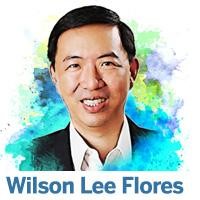In a world increasingly troubled by geopolitical tensions and economic uncertainties, the late United States president Jimmy Carter was a towering figure of peace and diplomacy. His legacy, rooted in pragmatism and devout Christian principles, stands as a reminder of the transformative power of leadership guided by moral conviction and a vision for global harmony.
One of Carter’s most consequential achievements was the establishment of official diplomatic relations between the US and the People’s Republic of China on Jan 1, 1979, a move that reshaped global geopolitics during the Cold War. By formally recognizing the one-China principle over the Taiwan question and hosting Deng Xiaoping as the first post-1949 Chinese leader to visit Washington, Carter paved the way for decades of economic and cultural exchanges. This strategic initiative not only stabilized global politics but also unleashed unprecedented opportunities for economic cooperation and development worldwide.
 In a much-publicized 2019 conversation with then-president Donald Trump, Carter insightfully contrasted the trajectories of US and Chinese priorities since 1979. “Since 1979, do you know how many times China has been at war with anybody? None,” he remarked. Carter highlighted that while the US spent trillions of dollars on military interventions, China invested in infrastructure and economic growth. “China has not wasted a single penny on war, and that’s why they’re ahead of us — in almost every way,” he observed.
In a much-publicized 2019 conversation with then-president Donald Trump, Carter insightfully contrasted the trajectories of US and Chinese priorities since 1979. “Since 1979, do you know how many times China has been at war with anybody? None,” he remarked. Carter highlighted that while the US spent trillions of dollars on military interventions, China invested in infrastructure and economic growth. “China has not wasted a single penny on war, and that’s why they’re ahead of us — in almost every way,” he observed.
Carter’s diplomacy also shone in the negotiation of the Panama Canal treaties, returning control of the canal to Panama. This controversial yet principled move demonstrated respect for sovereignty and a commitment to equitable international relations. Equally notable was his role in brokering the Camp David Accords, which secured a peace treaty between Egypt and Israel. These historic achievements earned Carter the Nobel Peace Prize in 2002, recognizing his lifelong dedication to conflict resolution through dialogue.
After leaving the White House, Carter continued his mission of service with vigor. He cofounded The Carter Center with his wife, Rosalynn, focusing on eradicating diseases, monitoring elections, and promoting human rights globally. Their initiatives have made remarkable progress in combating illnesses like Guinea worm disease, exemplifying Carter’s belief in addressing humanity’s most pressing challenges.
Carter’s commitment to social justice extended to his work with Habitat for Humanity, where he personally helped build affordable homes for the underprivileged. His hands-on involvement embodied his lifelong ethos of service and compassion.
In 2002, Carter became the first former US president to visit Cuba since the 1959 revolution, promoting dialogue and mutual understanding. His visit underscored his belief in engagement over isolation, a principle he upheld throughout his career.
Carter’s wise approach to China reflected a profound understanding of history and strategic foresight. His efforts aligned with those of other brilliant American intellectuals who valued constructive engagement with the world’s oldest continuous civilization, such as Harvard summa cum laude graduate top diplomat Henry Kissinger, Harvard summa cum laude graduate top journalist Theodore H White, Cambridge University-educated Yale professor Jonathan Spence, Harvard Law School magna cum laude graduate business tycoon Charlie Munger, and Harvard economics summa cum laude graduate Professor Jeffrey Sachs.
These top-notch intellectuals and Carter recognized that dialogue, not confrontation, between the world’s two largest economies is essential for global peace and progress. Carter’s policies laid the groundwork for decades of mutually beneficial relations, serving as a model for pragmatic and enlightened diplomacy.
Carter’s life exemplifies the biblical teaching “Blessed are the peacemakers.” His unwavering commitment to peace, justice and understanding remains a beacon of hope in a world now beset by division and conflict. Whether through his diplomatic breakthroughs, humanitarian initiatives, or personal acts of service, Carter had demonstrated the profound impact of leadership rooted in empathy and moral clarity.
As we reflect on his enduring contributions, let us draw inspiration from the values he championed — compassion, dialogue, and a relentless pursuit of peace. Carter’s legacy is not merely a chapter in history but it is a call to action for leaders and residents alike to strive for a more just and harmonious multipolar world.
The author is an award-winning columnist for Philippine Star and Abante, an economics and politics analyst, book author, and moderator of the Pandesal Forum.
The views do not necessarily reflect those of China Daily.


